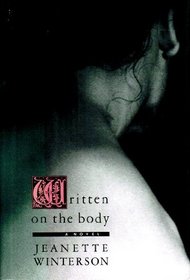Helpful Score: 7
my favorite book on the planet. love, loss, memory, imagination.
an intense love story, the narrator's gender is never revealed.
an intense love story, the narrator's gender is never revealed.
Helpful Score: 4
A friend insisted that I read this book for the groundbreaking writing. She said that I would appreciate it as a writer, and she was right. The story, however, was unmemorable and almost uncomfortable and depressing at times. I won't deny that Winterson is a gifted writer but this book wasn't my cup of tea when it comes to reading for pleasure.
Helpful Score: 2
On the book jacket-
This fourth effort from British writer Winterson ( Sexing the Cherry ) is a high-concept erotic novelette, a Vox for the postmarital crowd. The narrator, a lifelong philanderer ("I used to think marriage was a plate-glass window just begging for a brick"), has fallen in love with Louise, a pre-Raphaelite beauty. Louise is unhappily married to a workaholic cancer researcher, so the narrator leads her into a sexually combative affair. This scenario seems obvious enough, but Winterson never reveals whether the narrator is male or female. Rather, she teases readers out of their expectations about women and men and romance: Louise calls the narrator "the most beautiful creature male or female that I have ever seen," and the narrator observes, "I thought difference was rated to be the largest part of sexual attraction but there are so many things about us that are the same." When the narrator breaks off the affair after learning that Louise has cancer--only her husband can cure her--the work turns into a eulogy for lost love. Winterson manipulates gender expertly here, but her real achievement is her manipulation of genre : the capacious first-person narration, now addressed to the reader, now to the lover, enfolds aphorisms, meditations on extracts from an anatomy textbook, and essayistic riffs on science, virtual reality and the art of fiction ("I don't want to reproduce, I want to create something entirely new"). "It's as if Louise never existed," the narrator observes, "like a character in a book. Did I invent her?" One wonders, as Winterson intends, and then wonders some more. For Louise--and the narrator's love for her--never seems quite real; in this cold-hearted novel love itself, however eloquently expressed, is finally nothing more than a product of the imagination.
Copyright 1992 Reed Business Information, Inc. --This text refers to an out of print or unavailable edition of this title.
This fourth effort from British writer Winterson ( Sexing the Cherry ) is a high-concept erotic novelette, a Vox for the postmarital crowd. The narrator, a lifelong philanderer ("I used to think marriage was a plate-glass window just begging for a brick"), has fallen in love with Louise, a pre-Raphaelite beauty. Louise is unhappily married to a workaholic cancer researcher, so the narrator leads her into a sexually combative affair. This scenario seems obvious enough, but Winterson never reveals whether the narrator is male or female. Rather, she teases readers out of their expectations about women and men and romance: Louise calls the narrator "the most beautiful creature male or female that I have ever seen," and the narrator observes, "I thought difference was rated to be the largest part of sexual attraction but there are so many things about us that are the same." When the narrator breaks off the affair after learning that Louise has cancer--only her husband can cure her--the work turns into a eulogy for lost love. Winterson manipulates gender expertly here, but her real achievement is her manipulation of genre : the capacious first-person narration, now addressed to the reader, now to the lover, enfolds aphorisms, meditations on extracts from an anatomy textbook, and essayistic riffs on science, virtual reality and the art of fiction ("I don't want to reproduce, I want to create something entirely new"). "It's as if Louise never existed," the narrator observes, "like a character in a book. Did I invent her?" One wonders, as Winterson intends, and then wonders some more. For Louise--and the narrator's love for her--never seems quite real; in this cold-hearted novel love itself, however eloquently expressed, is finally nothing more than a product of the imagination.
Copyright 1992 Reed Business Information, Inc. --This text refers to an out of print or unavailable edition of this title.
Helpful Score: 1
Unbelievably great. You just get drawn in to the love story and draw your own conclusions. One of my all time favourites.




